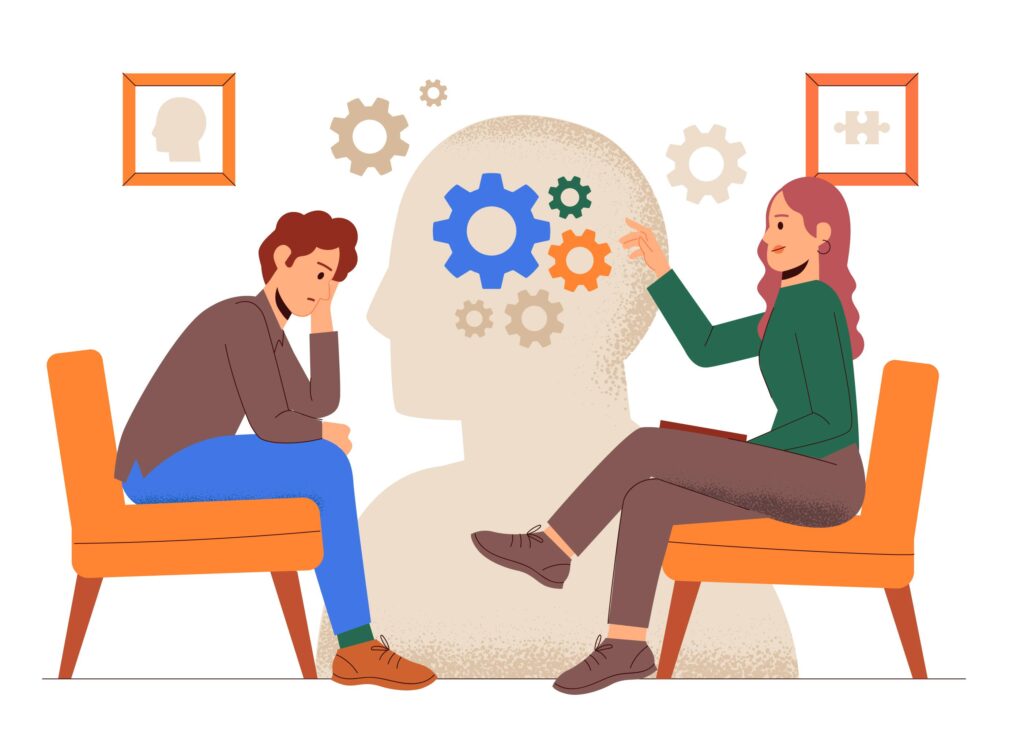Sales psychology is the study of the emotional and cognitive processes that drive people to make purchasing decisions. It’s the fusion of psychological principles with sales techniques to better understand, influence, and cater to buyer behavior. By learning the psychological triggers and factors that affect decision-making, sales professionals can enhance their strategies, build stronger relationships with customers, and ultimately close more deals.
In this article, we’ll explore the essential aspects of sales psychology, discuss how understanding buyer behavior can help salespeople achieve better outcomes, and share actionable techniques that can be applied in everyday sales practices.
1. The Role of Psychology in Sales
Sales is fundamentally about human interaction and persuasion. Unlike traditional hard-selling approaches, modern sales psychology emphasizes empathy, trust, and value-building. It’s about understanding the buyer’s emotions, thoughts, and motivations, then aligning the sales process with these insights to provide personalized and relevant solutions.
Key psychological concepts that influence buyer behavior include:
- Cognitive biases – Humans rely on mental shortcuts (biases) when making decisions. Understanding these biases can help sales professionals influence how customers perceive products or services.
- Emotions – Buying decisions are often emotional rather than purely rational. Feelings like trust, fear, excitement, or desire significantly impact purchase choices.
- Social proof – People are influenced by the actions and opinions of others. Demonstrating how others have benefited from a product can nudge potential buyers.
- Reciprocity – When people receive something of value, they often feel obliged to return the favor. Offering free trials or valuable information can create a sense of obligation to reciprocate by purchasing.
By leveraging these psychological elements, sales professionals can craft more effective strategies and engage buyers on a deeper level.
2. Buyer Personas: Understanding Different Buyer Types
To effectively apply sales psychology, it’s crucial to understand that not all buyers are the same. People have different personalities, needs, and preferences that shape their decision-making. Recognizing these differences allows salespeople to tailor their approach to different buyer personas.
Common buyer types include:
- The Analytical Buyer – This buyer is logical, data-driven, and focused on facts. They need detailed information, statistics, and logical reasoning to make a decision.
- The Amiable Buyer – Amiable buyers are relationship-focused and prefer a personal, consultative sales process. They respond well to trust, reassurance, and a focus on collaboration.
- The Driver Buyer – These buyers are goal-oriented, decisive, and confident. They value efficiency, speed, and clear results. They want to know how the product will help them achieve their objectives quickly.
- The Expressive Buyer – Expressive buyers are enthusiastic, big-picture thinkers. They’re driven by vision, creativity, and excitement. Engaging them requires a focus on storytelling and inspiration.
By identifying the type of buyer they’re dealing with, sales professionals can adjust their communication style, presentation, and approach to meet the specific needs and preferences of the buyer.
3. The Buying Decision Process
Every buyer goes through a series of steps before making a purchase decision. Understanding these stages allows salespeople to align their strategies with the buyer’s journey.
3.1. Problem Recognition
The first step in the buying process is recognizing a need or problem. This may be triggered by external factors, such as seeing a friend use a product or encountering a personal challenge that requires a solution. Salespeople can help buyers recognize their needs by asking probing questions that highlight pain points or uncover latent problems.
3.2. Information Search
Once a problem is identified, buyers search for solutions. This can involve researching online, asking for recommendations, or talking to salespeople. At this stage, buyers are looking for valuable information that helps them evaluate their options. Sales professionals should position themselves as helpful advisors, providing educational content, product comparisons, or case studies that guide the buyer’s research.
3.3. Evaluation of Alternatives
After gathering information, buyers compare their options. This is where cognitive biases and emotional factors play a significant role. Salespeople can influence the evaluation process by framing their product as the best solution through storytelling, testimonials, or emphasizing unique selling propositions (USPs).
3.4. Purchase Decision
Once the buyer has evaluated their options, they make a purchase decision. Even at this stage, emotional reassurance is essential. Salespeople should address any lingering doubts, offer guarantees, or create a sense of urgency (e.g., limited-time offers) to help the buyer move forward with confidence.
3.5. Post-Purchase Behavior
The buying process doesn’t end with the purchase. Buyers will evaluate their satisfaction post-purchase and decide if they made the right choice. A positive post-purchase experience can lead to repeat business and referrals, while a negative one can cause buyer’s remorse. Sales professionals should follow up with customers, offer ongoing support, and ensure the product delivers on its promises.
4. Psychological Triggers in Sales
Psychological triggers are powerful cues that can influence buyer behavior. By incorporating these triggers into the sales process, sales professionals can create an environment that encourages purchasing decisions. Some of the most effective psychological triggers include:
4.1. Scarcity
People tend to place higher value on things that are scarce or limited in availability. By emphasizing scarcity (e.g., “Only 5 items left in stock”), salespeople can create a sense of urgency and push buyers to act quickly before they miss out.
4.2. Social Proof
People are more likely to make a decision if they see others doing the same. Social proof includes customer reviews, testimonials, case studies, and endorsements from experts. Displaying evidence of how others have successfully used the product builds trust and reduces perceived risk.
4.3. Authority
Buyers are more likely to trust and follow the guidance of perceived experts or authority figures. By establishing themselves as knowledgeable, trustworthy sources (e.g., through thought leadership content or certifications), salespeople can increase their credibility and influence buyers.
4.4. Reciprocity
The principle of reciprocity states that people feel obligated to give back when they receive something. Offering a free trial, sample, or valuable advice can create a sense of indebtedness in the buyer, increasing the likelihood of a purchase.
4.5. Anchoring
Anchoring refers to the tendency for people to rely heavily on the first piece of information they encounter (the “anchor”) when making decisions. By presenting a high initial price, for example, salespeople can make subsequent lower prices seem like a better deal.
4.6. Consistency
People like to be consistent with their past actions. If a buyer has previously shown interest in a product, even through a small commitment like signing up for a newsletter, they’re more likely to follow through with a purchase. Sales professionals can encourage small commitments early in the process to create momentum toward a sale.
4.7. Fear of Missing Out (FOMO)
The fear of missing out can be a strong motivator for buyers. Limited-time offers, exclusive deals, or early access promotions tap into the desire to avoid losing out on something valuable.
5. Building Trust and Relationships
One of the most significant components of sales psychology is building trust with potential buyers. Trust is the foundation of any successful sales relationship. Without trust, even the best product will struggle to find buyers.
5.1. Active Listening
Salespeople who actively listen to their customers demonstrate that they genuinely care about their needs. Instead of pushing a product, listening allows the salesperson to tailor the solution to the buyer’s unique situation, building rapport and trust.
5.2. Transparency
Being honest and transparent about a product’s strengths and weaknesses builds credibility. Buyers appreciate when salespeople are upfront and realistic, rather than using exaggerated claims.
5.3. Personalization
Personalized interactions make buyers feel valued. Tailoring communications, recommendations, and offers based on the buyer’s behavior and preferences shows that the salesperson has invested time in understanding them.
5.4. Follow-Up
Following up after a sale is not just about closing the deal but ensuring customer satisfaction. Checking in with customers to ensure they’re happy with their purchase, offering support, or providing additional resources helps build long-term relationships.
6. Overcoming Objections
Objections are a natural part of the sales process. Rather than viewing objections as roadblocks, salespeople should see them as opportunities to address concerns and build further trust. Using psychology to understand the root of objections (fear, uncertainty, budget constraints) enables sales professionals to tailor their responses effectively.
6.1. Empathy and Reframing
Acknowledging and empathizing with a buyer’s concerns shows that you’re on their side. Once the concern is validated, reframing it in a positive light can help move the conversation forward. For example, if a buyer says the price is too high, a salesperson can reframe it by emphasizing the long-term value and ROI.
6.2. Providing Proof
If a buyer is uncertain, offering evidence through testimonials, case studies, or data can help alleviate their concerns. Seeing how others have benefited from the product builds confidence.
7. The Importance of Emotional Intelligence in Sales
Emotional intelligence (EQ) is the ability to recognize and manage one’s emotions and the emotions of others. High emotional intelligence is critical for sales professionals, as it allows them to navigate the complexities of human behavior, build stronger relationships, and adapt to different buyers.
7.1. Self-Awareness
Salespeople with high self-awareness understand their own emotions and how they affect their interactions. This enables them to stay calm under pressure, avoid overreacting to rejection, and maintain a positive attitude.
7.2. Empathy
Empathy is the ability to understand and share the feelings of others. By empathizing with buyers, salespeople can create meaningful connections, demonstrate genuine concern for their needs, and build trust.
7.3. Adaptability
Emotionally intelligent sales professionals can adapt their approach based on the buyer’s emotional state. If a buyer is stressed, they may need reassurance and patience. If they’re excited, they may respond well to enthusiasm and a focus on benefits.
Conclusion
Sales psychology is a powerful tool that allows sales professionals to understand and influence buyer behavior more effectively. By leveraging psychological principles such as cognitive biases, emotional triggers, and social proof, salespeople can tailor their approach to different buyer types and stages of the buying process. Building trust, addressing objections with empathy, and using emotional intelligence to navigate the sales process further enhance the likelihood of closing deals.
Understanding buyer behavior isn’t about manipulating or coercing customers—it’s about creating value, solving problems, and helping buyers make informed decisions that meet their needs. By mastering the art of sales psychology, sales professionals can foster long-term relationships, increase customer satisfaction, and close more deals in a competitive marketplace.



